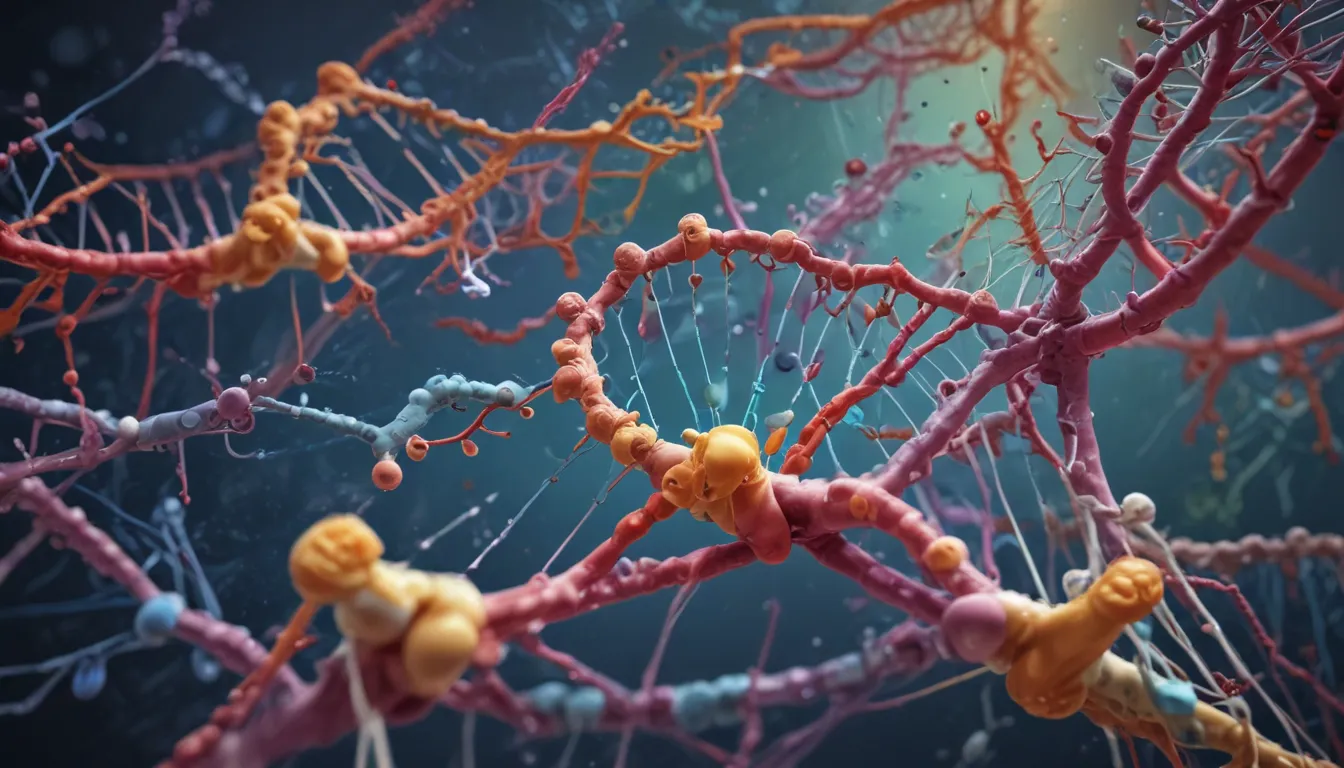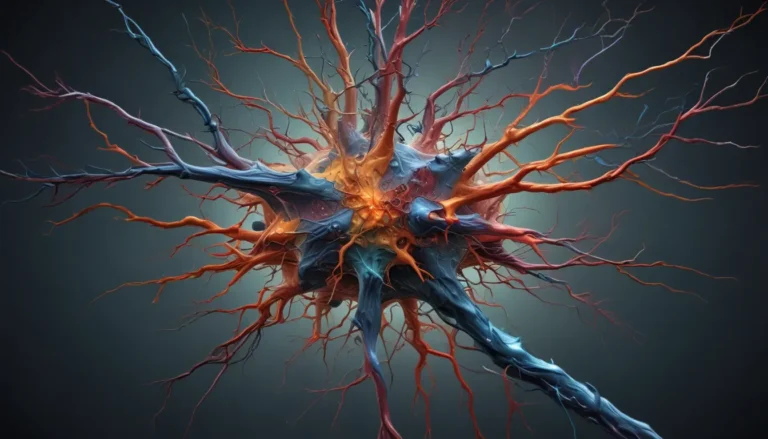A Note About Images: The images used in our articles are for illustration purposes only and may not exactly match the content. They are meant to engage readers, but the text should be relied upon for accurate information.
Epigenomics, a captivating field of study, delves into the complex relationship between our genes and their environment, shedding light on the intricate dance of gene expression and regulation. Through exploring the modifications that occur in our DNA without altering the genetic code, epigenomics offers profound insights into our overall health and well-being. In recent years, this emerging field has garnered significant attention for its potential to revolutionize healthcare, agriculture, and our understanding of various diseases and conditions.
Understanding the Crucial Role of Epigenomics in Gene Expression
Epigenomics focuses on studying all the chemical modifications that occur on DNA and its associated proteins, determining which genes are activated or silenced within a cell. By unraveling these modifications, scientists gain invaluable knowledge about how our genes function and interact, providing a deeper understanding of the mechanisms governing gene expression.
Exploring the Heritability of Epigenetic Changes
One intriguing aspect of epigenomics is the inheritability of epigenetic modifications, allowing these changes to be passed down from one generation to another. This phenomenon, known as transgenerational epigenetic inheritance, underscores the intricate interplay between genetics and environmental factors in shaping gene expression patterns in offspring.
Impact of Environmental Factors on Epigenetic Modifications
Our epigenome, sensitive to various environmental influences such as diet, exercise, stress, and exposure to toxins, undergoes modifications that can shape gene expression patterns and potentially impact our overall health. Understanding how external factors influence the epigenome provides valuable insights into disease susceptibility and prevention strategies.
Reversibility and Therapeutic Potential of Epigenomic Changes
Unlike genetic mutations, epigenetic modifications can be reversed, offering hope for potential therapeutic interventions. Scientists are exploring targeted approaches to reverse specific epigenetic changes by focusing on enzymes or proteins involved in these modifications, aiming to develop treatments for a wide range of diseases and conditions.
Unraveling the Complexity of Cancer Through Epigenomics
Aberrant epigenetic changes play a critical role in the development and progression of cancer. By understanding these alterations, researchers can identify novel biomarkers for early detection and develop targeted therapies to combat the disease. Epigenomics offers a promising avenue for improving cancer diagnosis and treatment outcomes.
Showcasing the Plasticity of Cells Through Epigenetic Modifications
Epigenetic changes enable cells to respond and adapt to environmental cues without altering their DNA sequence. This plasticity allows different cell types to function appropriately, responding dynamically to their diverse roles within the body. Understanding the plasticity of cells through epigenomics provides insights into cell behavior under varying conditions.
Contribution of Epigenomic Variations to Disease Susceptibility
Epigenetic changes can predispose individuals to various diseases, including diabetes, cardiovascular diseases, and autoimmune disorders. By studying these epigenetic profiles, researchers can unravel disease mechanisms and develop strategies for disease prevention and management based on individual epigenetic profiles.
Shedding Light on Aging Through Epigenomics
Age-related changes in the epigenome, referred to as epigenetic aging, offer valuable insights into the aging process. Scientists are investigating these modifications to better understand factors influencing lifespan and to develop interventions for combating age-related conditions. Epigenomics provides a window into the complex interplay between genetics, environmental factors, and the aging process.
Personalized Medicine and Epigenomics
The field of epigenomics holds immense potential for revolutionizing healthcare through personalized treatment approaches. Clinicians can analyze a patient’s epigenetic profile to tailor therapies to target specific gene expression patterns, enhancing treatment efficacy and precision. The use of epigenomic markers in personalized medicine opens new avenues for individualized healthcare strategies.
Promising Applications of Epigenomics in Neurological Disorders
Epigenetic modifications are increasingly linked to neurological disorders such as Alzheimer’s disease, Parkinson’s disease, and depression. Researchers are exploring these epigenetic marks to uncover underlying disease mechanisms and identify potential therapeutic targets for improving neurological disorder management. Epigenomics offers new insights into the complex nature of neurological conditions and potential treatment strategies.
Epigenomics: Transforming Agriculture Through Precision Practices
Epigenetic modifications in crops offer opportunities to enhance agricultural practices, improve crop yields, enhance disease resistance, and optimize food production. Understanding how environmental factors impact crop epigenomes enables scientists to develop strategies for sustainable agriculture and food security. Epigenomics is driving innovation in precision agriculture, paving the way for advancements in crop productivity and sustainability.
Conclusion: Unlocking the Mysteries of Epigenomics for Future Discoveries
Epigenomics continues to captivate researchers with its intricate exploration of gene regulation beyond the DNA code. From unraveling the complexities of cancer to exploring personalized medicine’s potential and shedding light on aging mechanisms, epigenomics holds keys to unlocking cellular mysteries and advancing healthcare practices. The field of epigenomics is on a path to groundbreaking discoveries and innovative therapies, driven by a deep understanding of how our genes interact with environmental factors to shape our health and well-being.
Dive Deeper into Epigenomics: Discover More Fascinating Insights
Explore the captivating world of epigenomics through cutting-edge sequencing techniques, delve into the complexities of gene regulation, and uncover the potential of epigenetics in shaping the future of biology and medicine. Epigenomics offers a rich tapestry of scientific exploration, inviting curious minds to discover the wonders of gene expression, environmental influences, and personalized treatment approaches. Immerse yourself in the fascinating world of epigenomics and unlock the secrets of gene regulation for a brighter future of healthcare and agriculture.
FAQs: Your Questions Answered
- What is epigenomics?
-
Epigenomics is the study of epigenetic modifications that influence gene expression without altering the underlying DNA sequence. It explores the complex interplay between genetics, environmental factors, and gene regulation mechanisms.
-
How does epigenomics relate to genetics?
-
While genetics focuses on the study of heredity and gene variations, epigenomics delves into the modifications that regulate gene expression, offering insights into how genes are activated or silenced in response to environmental cues.
-
What role does epigenomics play in cancer?
-
Epigenomic alterations are key drivers of cancer development and progression, affecting gene expression patterns involved in cell growth, division, and DNA repair. Understanding these changes is crucial for developing targeted therapies and improving cancer treatment outcomes.
-
Can epigenomic changes be reversed?
- Yes, certain epigenomic changes can be reversed through targeted interventions such as DNA methyltransferase inhibitors and histone deacetylase inhibitors. These therapies show promise in resetting abnormal epigenetic patterns and restoring normal gene expression in various diseases, including cancer.
Epigenomics unveils a world of possibilities in understanding gene regulation, disease mechanisms, and agricultural practices. Embrace the journey of discovery into the complex realm of epigenomics, where the secrets of gene expression and environmental influences await exploration. Join the quest for knowledge and innovation as we unlock the mysteries of epigenomics for a brighter and healthier future.






